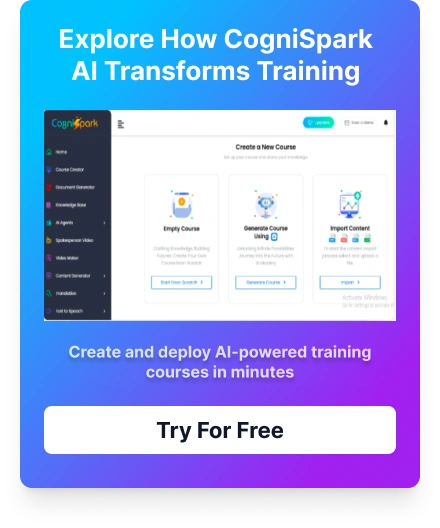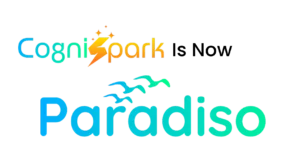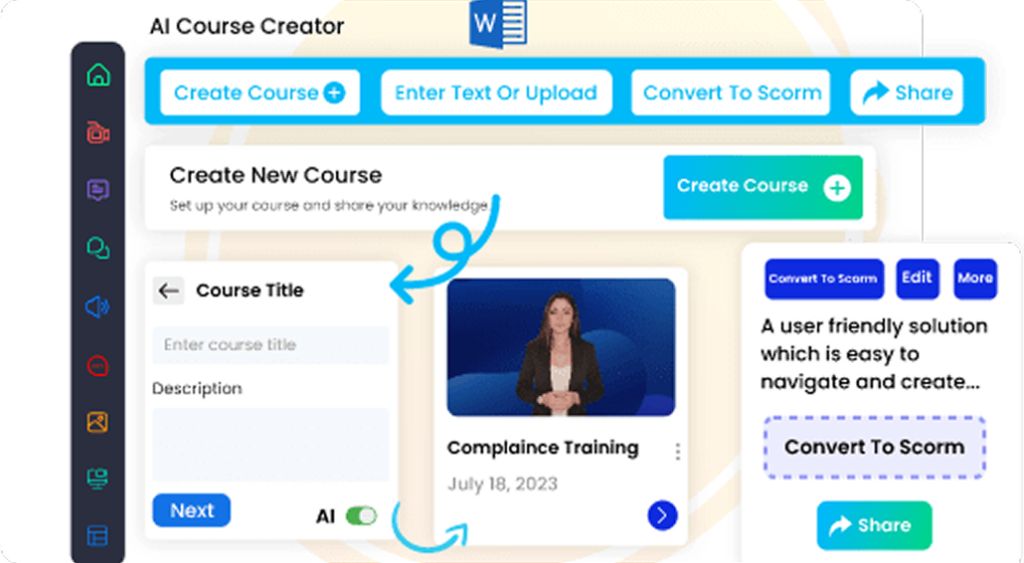How AI Course Generators Are Replacing Traditional Content Creation
Online education is currently witnessing a fundamental transformation, driven largely by rapid advancements in artificial intelligence. At the heart of this change are AI course generators, which are completely redefining the way educational material is built, customized, and distributed. These advanced tools go far beyond simple automation; they are overhauling the entire production workflow, making content creation significantly faster, smarter, and more scalable.
As modern learners demand more dynamic and personalized experiences, educational institutions and corporate training departments are increasingly pivoting away from manual methods in favor of these powerful AI-driven solutions.
The New Era of Course Development
By harnessing the power of adaptive algorithms and generative models, AI course generators are streamlining the creation of complex educational materials. Traditional content development often involves a slow, linear process requiring large teams of instructional designers and subject matter experts. In contrast, AI-powered tools can produce comprehensive course drafts in a matter of hours rather than weeks. This efficiency is becoming essential as the demand grows for up-to-date, engaging, and personalized learning content in our digital-first world
Why AI Adoption is Accelerating
Microlearning and Tailored Experiences
AI is the perfect engine for microlearning—breaking down complex topics into bite-sized, digestible modules that improve retention. By analyzing individual learner data, generative models can tailor these materials to match specific proficiency levels and learning styles, creating a truly adaptive educational experience.
Effortless Integration with LMS Platforms
Leading AI course generators are designed to integrate seamlessly with Learning Management Systems (LMS). This connectivity automates the updating process, simplifies administrative workflows, and delivers actionable insights through advanced analytics. The result is content that stays current with curriculum standards while drastically reducing the administrative burden on educators.
Democratizing Creation with No-Code Tools
The emergence of no-code and low-code platforms is lowering the barrier to entry for course creation. Educators and trainers without technical backgrounds can now construct professional-grade courses rapidly, leveraging AI automation and smart templates to produce high-quality results without writing a single line of code.
What AI Course Generators Can Do
Dynamic and Adaptive Content
AI algorithms can modify content in real-time based on how learners interact with the material. Generative models can instantly create diverse assets—such as quizzes, summaries, and interactive elements—resulting in dynamic courses that evolve to meet learner needs.
Multimodal Learning Experiences
To cater to diverse learning preferences, AI supports multimodal delivery by seamlessly blending text, visuals, audio, and video elements. This rich media approach ensures that learners remain engaged and retain information more effectively.
Instant Feedback and Evaluation
AI-driven systems provide immediate value through automated grading and real-time feedback. This allows learners to identify and correct mistakes instantly, while giving educators timely data to address knowledge gaps before they become problematic.
Foundations for Scalable Content Strategy
Standardized Templates and Frameworks
Using AI-driven templates ensures that all courses maintain a consistent structure and quality standard. This standardization streamlines the development process and makes future updates much simpler to manage.
Governance and Quality Assurance
To maintain reliability and pedagogical soundness, effective AI implementation requires clear quality metrics and governance frameworks. Automated monitoring tools work alongside human oversight to ensure compliance and accuracy.
Intelligent Content Libraries
AI tools rely on robust datasets and curated libraries to generate relevant and accurate material. These repositories serve as the knowledge base for creating diverse and high-quality educational resources.
The Strategic Value of AI Generators
Unmatched Speed and Agility
AI can draft complete courses in hours, allowing organizations to respond rapidly to new trends or training requirements. This speed ensures that learning catalogs remain relevant and up-to-date.
Scalable Personalization
AI enables the production of personalized learning paths at scale without a proportional increase in resources. This allows organizations to offer tailored educational experiences to thousands of learners simultaneously.
Enhanced Consistency
Automated content generation improves uniformity in tone, formatting, and accuracy across all course materials. Continuous AI updates further ensure that quality improves over time.
Navigating Risks and Challenges
Ensuring Accuracy and Quality
Because AI outputs depend heavily on input data quality, human review remains critical. Subject matter experts must validate content to ensure accuracy, relevance, and instructional integrity.
Managing Intellectual Property
Organizations must establish clear policies regarding data sources and content ownership to avoid legal complications and ensure compliance with intellectual property laws.
Mitigating Bias
Using diverse datasets and implementing rigorous fairness protocols helps reduce bias, ensuring that the generated learning materials are inclusive and equitable.
Reliability and Support
Selecting vendors with a track record of dependable support and regular updates is crucial for maintaining the long-term quality and continuity of your training programs.
A Roadmap for Successful Implementation
1. Assess Your Readiness
Begin by evaluating your current infrastructure, data quality, and team capabilities. This assessment will help you build a solid foundation for AI adoption.
2. Deploy in Phases
Start with high-impact pilot projects to test the technology. Define clear success metrics and scale up gradually as you refine your processes and build confidence in the tools.
3. Balance Automation with Human Insight
Combine the efficiency of AI course generators with the critical judgment of human experts. Continuous monitoring and expert review build trust and ensure the highest quality outcomes.
4. Drive Organizational Adoption
Support your team through the transition with comprehensive training, clear communication, and strong leadership. Integrating AI into daily workflows is key to ensuring widespread adoption.
5. Govern and Optimize
Implement strict policies for data privacy and usage transparency. Use performance metrics and regular audits to continuously improve your AI strategy and maintain compliance.
Selecting the Right Tools and Measuring Success
When choosing an AI course generator, it is crucial to prioritize features like ease of use, customization options, scalability, and robust support for multimedia and integrations. For instance, a high-quality platform like the Paradiso Authoring Tool offers intuitive editing, real-time analytics, and seamless LMS integration, which are essential for building engaging and personalized courses efficiently. Success should be measured by tracking key metrics such as learner engagement, completion rates, and knowledge retention. It is also important to quantify the return on investment through cost savings and strategic alignment. A pilot program can be invaluable for validating workflows, gathering feedback, and refining your approach before a full-scale rollout.
Conclusion
AI course generators offer a level of speed, consistency, and personalization that traditional methods simply cannot match. By combining these powerful tools with strong human oversight and ethical practices, organizations can unlock immense value. With a clear implementation roadmap and the right platform, AI can become the cornerstone of a modern, scalable, and highly effective digital education strategy.
























